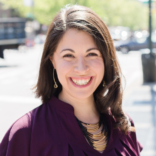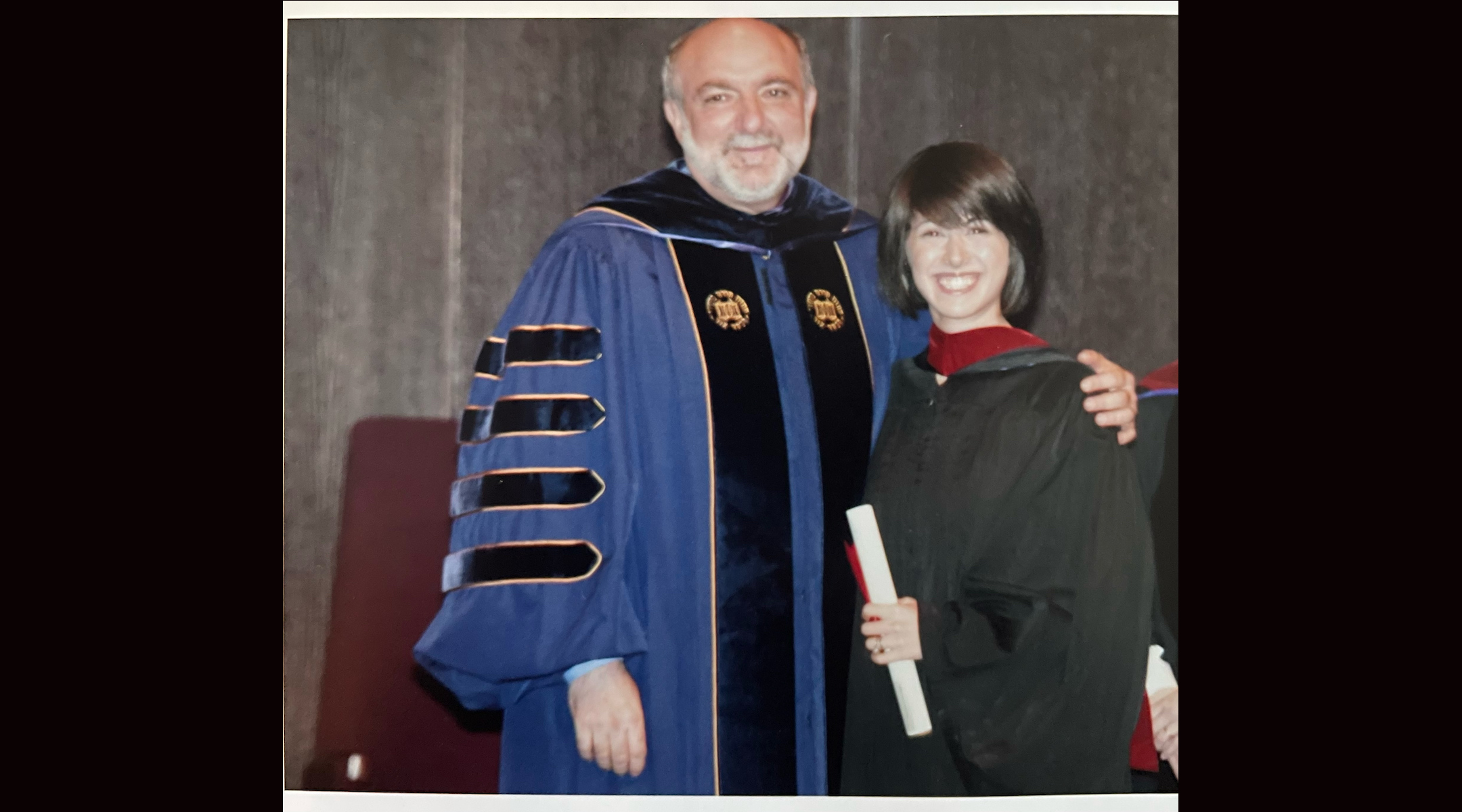(JTA) — It is the 24th of Kislev, one of the darkest days of the year, when we cannot wait to bring in the light of Hanukkah — and I just received the call that my teacher, my mentor, my rabbi, David Ellenson, has died. I was meant to meet with him today. It is hard for the child of a rabbi, who is also a rabbi, and teaches rabbis, to find a rabbi of her own. But David was my rabbi. The moment I choke on the words “Baruch Dayan Emet,” tears fall from my eyes.
I suddenly remember what David taught me in the aftermath of Sept. 11: “Rabbi Shimon Ben Gamliel said: Do not make monuments for the righteous — their ‘d’varim’ are their memorial” (Jerusalem Talmud Shekalim 11a). D’varim can mean words, and it can mean deeds, and David embodied the best of both.
The rabbis taught that it is forbidden to delivery a eulogy on Hanukkah except for sages of Torah — and that David was. I know that I am but one of a legion of his students who call him “my rabbi,” and will share their memories of him and continue to transmit his wisdom. David’s d’varim, words and love shared over 25 years, have shaped me as a thinker, rabbi, human, parent, spouse, teacher and friend.
In 2001, my husband and I were a few feet away when a terrorist bomb detonated in central Jerusalem. It was David, then president of HUC-JIR, who sat with me as a first-year student in Jerusalem. He was there on one of his many visits during the height of the second intifada, and he said nothing. Just sat with me, held my hand, hugged me as I shook.
Years later, he was my thesis advisor, and together we struggled with theological questions and the development of liberal Zionism. David had encyclopedic knowledge of where, on an exact page, I might find a paragraph of Rawidowicz or Hildesheimer, and on what volume and page in the Talmud I could find something that would support or refute or confuse my reading of a piece of liturgy. We had arguments over the nature of Jewish Peoplehood, of what makes us a collective body, of God and Torah and Jewish history and Jewish legacy.
Our work together extended into my current role supporting a new generation of rabbis through Atra: Center for Rabbinic Innovation, where he came on as a rabbinic advisor. Just this Tuesday, in my Google doc — that he had, of course, converted to a Word document — he added this comment in the margin: “October 7th has changed everything. I think it will be a watershed moment in American Jewish identity and American Jewish-Israeli relationships.” This week, with the shared goal of helping our rabbis adapt their leadership to this moment, we were grappling with the shifting nature of individual and public Jewish commitments in a moment when liberalism and Judaism were not necessarily in sync. Intellectual, but also pointed towards the real work that rabbis are doing today.
David was my rebbe. He pastored me through the untimely and sudden death of my father, whom he knew before my birth. He never hesitated to share his paramount love for, pride in and commitment to his wife and family; just this week, he waited to schedule a meeting until he helped send his grandchildren off to school. I know that relative to his family and his close friends, my loss is small, and I pray that this community of his students can support them in their profound grief. Yet David took to heart the teaching of Sanhedrin 19b that one who teaches Torah to the child of a friend is like another parent. David knew that all of us need to feel that type of love, and I am in awe of his ability to offer both validation and instruction, often at the same time. Not only to me, but to many hundreds of us who have lost our rabbi, our teacher, for he was a Gadol HaDor, a great rabbi of our era.
It’s hard to believe that David’s d’varim, words and actions are, as of the 24th of Kislev, past tense. I will not be meeting with him today, or any day. I will never again feel his hug, hear Torah from his mouth between sips of Diet Coke. I will never hear his feedback on this week’s writing; won’t have his ongoing advice as I seek to continue the work of advancing strong rabbinic leadership.
We Jews follow blessings with action, words with deeds. When we soon say “may his memory be for a blessing,” we rabbis can make it so when we learn and build upon David’s Torah; seek to extend his boundless love as we offer guidance with affirmation and pastoral care with empathy; to have open-eyed, spiritually attuned, and proactive care for Israel and the Jewish people; to ensure that our actions and commitments reflect our highest values. I know that my life’s work, supporting rabbis and the future of Jewish spiritual leadership, will always be guided and enriched by his wisdom and his actions.
May we, the students who learned from, who loved, and who experienced the love of our rabbi, David Ellenson, continue to build upon, to share, and to animate his d’varim, his words and deeds, and together strengthen the monument that will serve as his memorial and legacy.
JTA has documented Jewish history in real-time for over a century. Keep our journalism strong by joining us in supporting independent, award-winning reporting.







